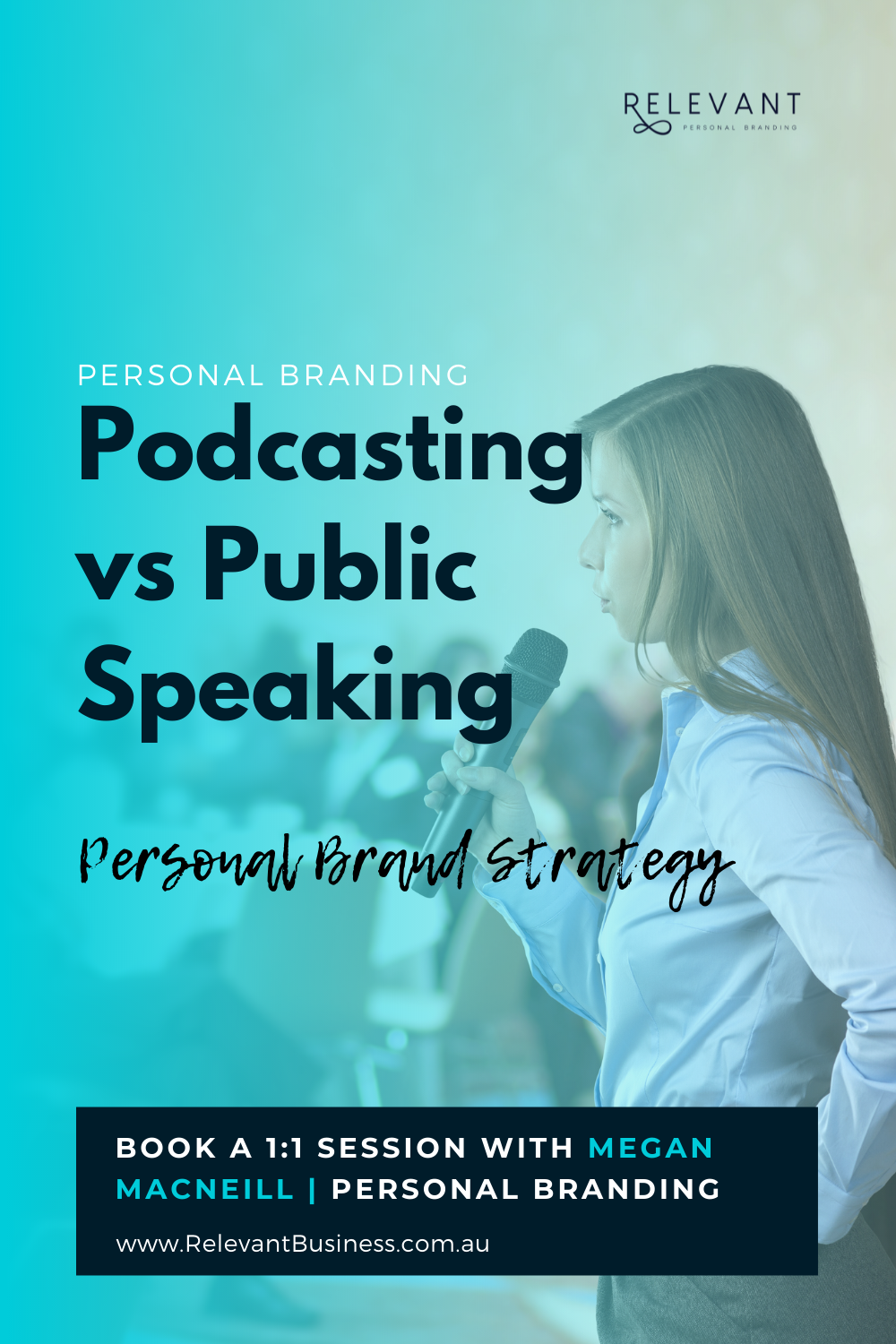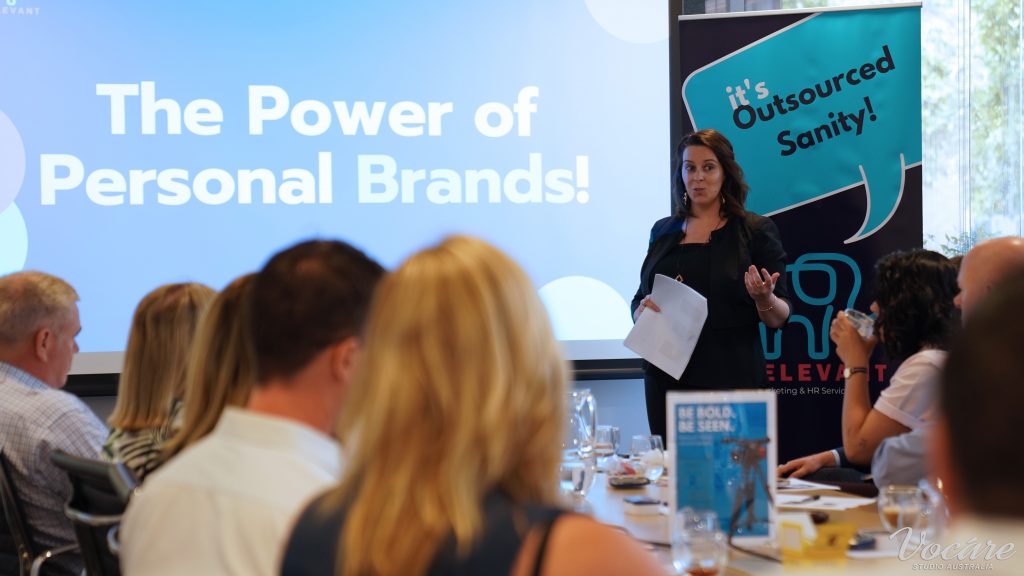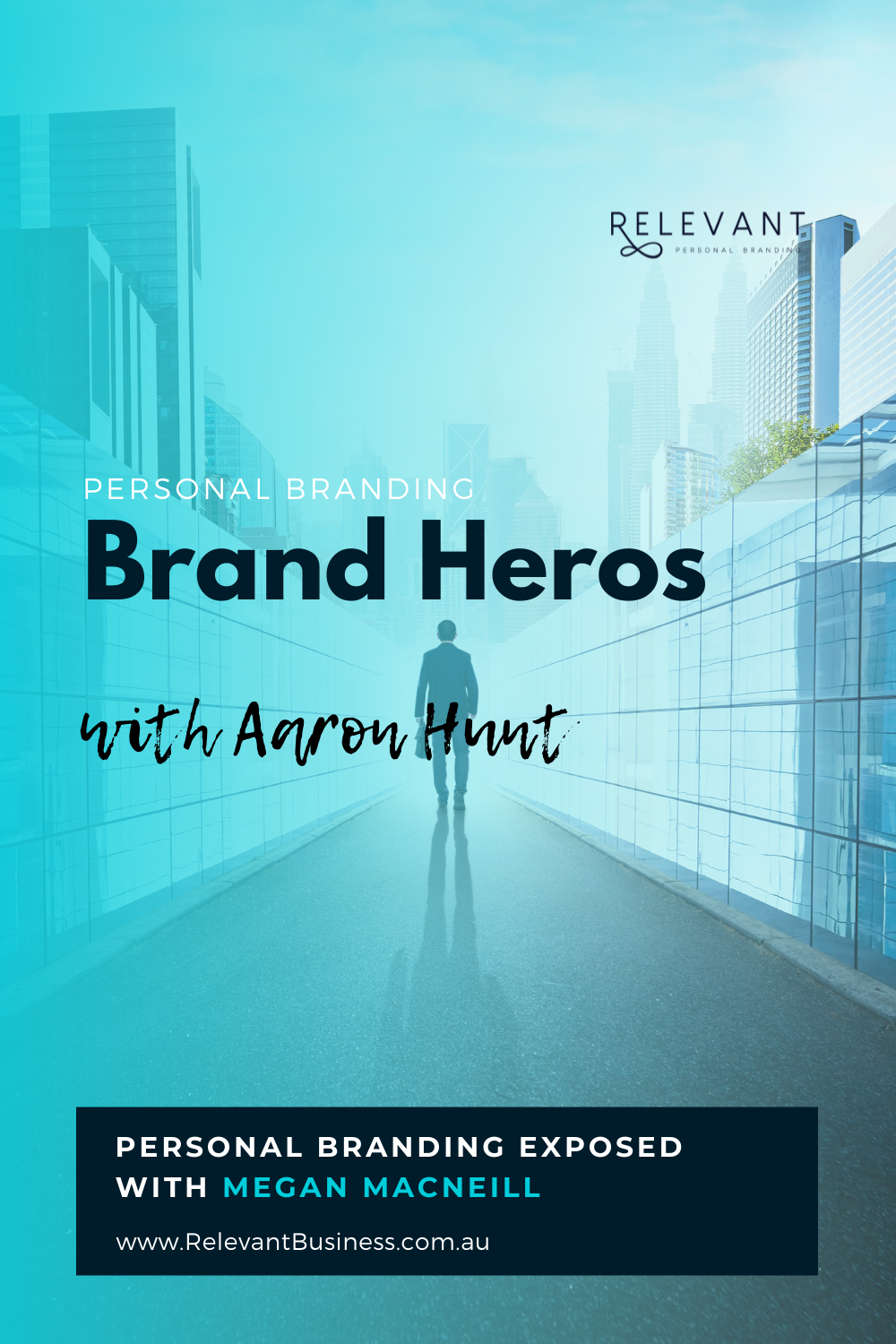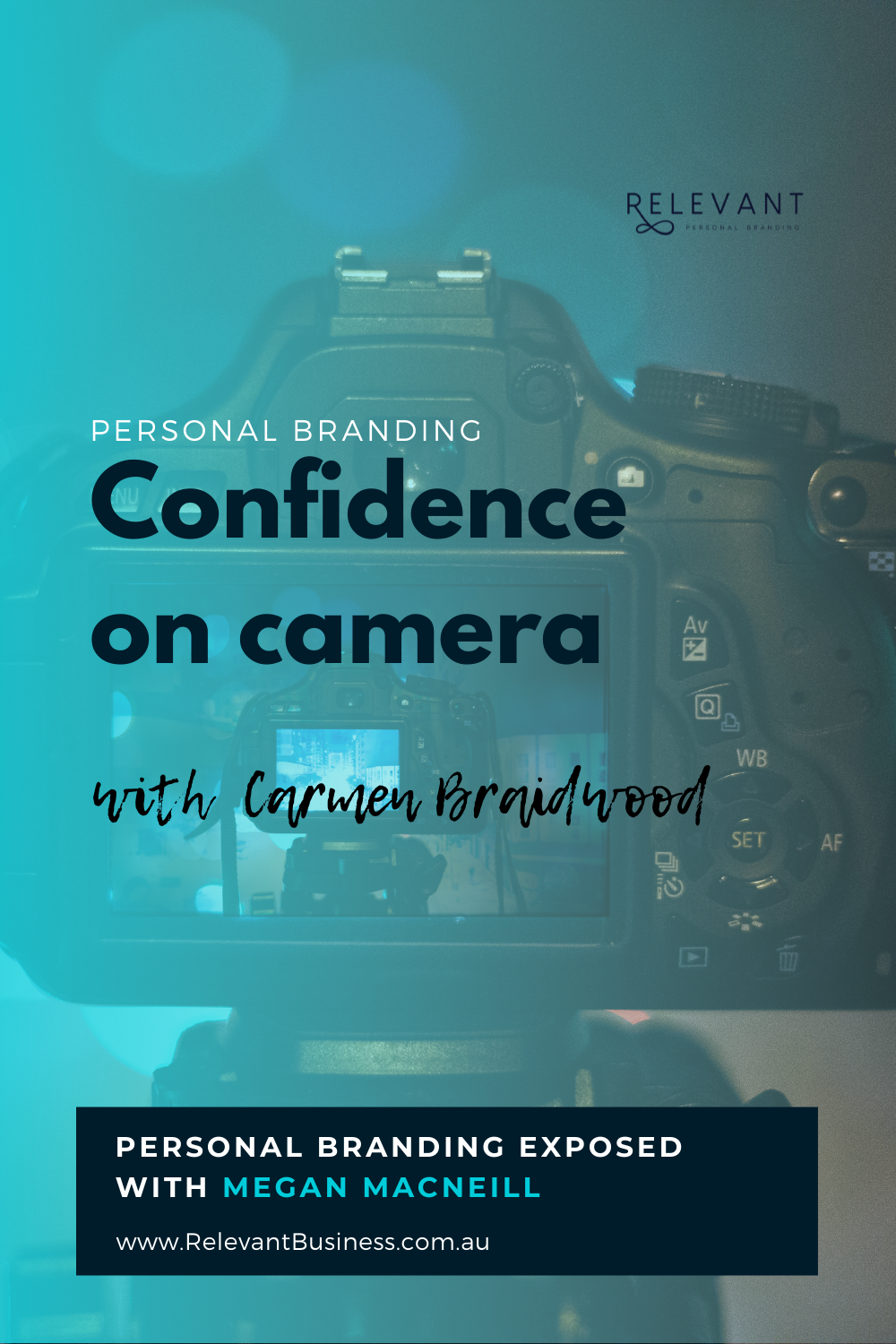When it comes to building a personal brand, there is no singular formula or method to follow and many that add this important step to their bucket list may have different on how to achieve it.
As you set on this objective yourself, you’ll quickly come to realize that the mediums that work for some may not work for you, and discerning that is the first and most important step.
Keeping that in mind, today we are looking at the pros and cons of podcasting Vs Public Speaking as platforms for building your personal brand, so you can tell which one is for you.
Podcasting
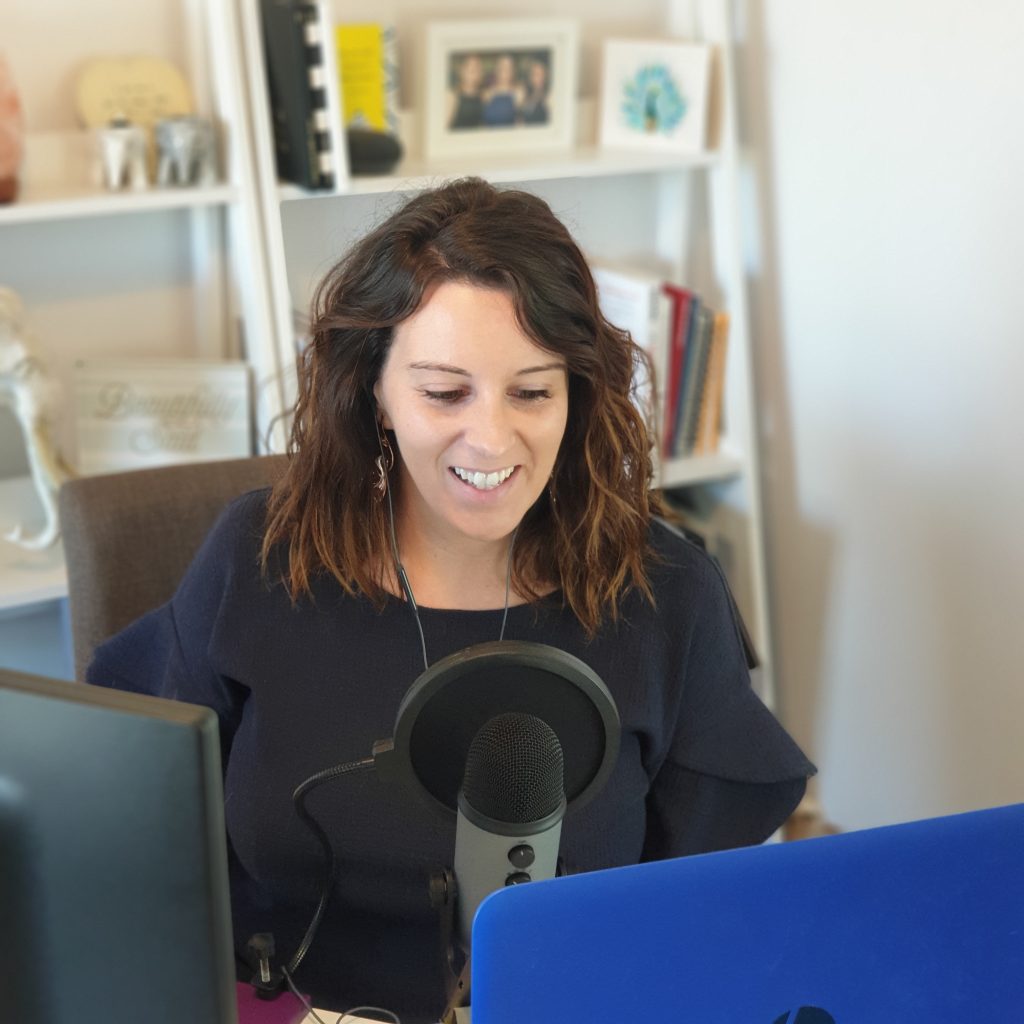
Pros
Pro: You can be edited
We’ve all had a moment where we said something that was deserving of being erased from records. In podcasting, you can do that. (unless it’s like my show which is done on LinkedIn Live and goes out as it is, so far no major ooopsies).
Pro: Reach
When you are public speaking you can only speak to a set number of people at a time, podcasting has no audience cap.
For example, one of the most listened to podcasts in the world, The Joe Rogan Experience, registered over 190 million downloads per month in 2019.
Pro: Evergreen
You step on stage, you speak, it’s over, people go home and you become a memory. Hopefully a great memory and a notebook full of notes but nevertheless it is over. Podcasts, on the other hand, are up there for life (unless taken down by the host). That being said there are exceptions like TedX, Big Think, and Talks at Google which are recorded and hosted online for the world to see.
Pro: On the move
When you speak to a crowd your voice is going to (hopefully) reach all the people in the room with you. Now, when doing a podcast, your voice is going to reach people in their homes, when their driving, or walking around, or hitting the gym.
These people will also be able to pause your podcast to attend to other things and play it back for important bits, making it extremely practical.
Pro: Control
You can litrally start a podcast right now. Like as soon as you stop reading this article. There is nothing stopping you (except you). To speak in public you generally have tp wait to be invited and you then need to travel there and then unexpected events like COVID can happen and your platfrom is taken from you. Having your own podcast show gives you control.
Pro: Early Adopter
Although starting a podcast is relatively simple with current technology, there are (as of October 2020) over 1.5 million podcasts compared to 555,000 in 2018. COVID certainly saw that number spike.
But that certainly doesn’t mean it is too late. Let’s look at podcasting compared to blogging and YouTube’ing (is that a thing? It is now…).
There are over 500 million blogs with more than 2 million posts going live every day and over 31 million YouTube channels.
Think it is fair to say there is still a lot of room to grow in podcasting.
Cons
Con: Cost
In order to have a podcast of relative quality, you can expect to make an investment of between 200 and 500 dollars for things such as microphones, editing software, or depending on how far you want to go, things like acoustic isolation.
*Tip – Don’t get hung up on this. You can totally get started with a pair of headphones with a micrapohone built in. Invest in equipment once you are sure podcasting is right for you.
Con: Promotion
Having a podcast is one thing, being listened to is another, which means you are going to need a good promotional strategy for your show which may be a little tricky to balance with your other activities.
*Tip – the more niche you are the better your chances. Yes you might have a smaller audeince but you will have a captive audience.
Con: Administration
When most people think of starting a platform, very few tend to think about all the supplementary platforms they’ll need. We’re talking websites for archiving the episodes, social media for sharing and engaging the audience. You can always pay people to take care of that aspect for you, but it also just adds to the cost.
Public Speaking
Pros
Pro: Visual
When speaking to a crowd you can employ the use of images, infographics, videos, things that stimulate more than one sense at a time and grip the audience’s attention. There is also the fact that personally giving out a public speech is great for strengthening your personal brand.
Pro: Paid
As a public speaker, you are going to have an easier time finding paying gigs, but to this, there is also an alternative for podcasters. My good friend, Travis Chappell started this site where you can book and pay for podcast guests to appear on your show.
Pro: Captive Audience
Although it’s great to incorporate yourself into your audience’s routine, you also have to keep in mind that you will have that you’ll be sharing their attention with everything else and that they may lose interest. In public speaking, however, you will always have your audience’s undisputed attention.
Pro: Authority
Public speaking is one of the best ways of building authority as an expert in your field as more and more people will see you as a source of information. As you establish yourself as an expert, you will get not only more clients, but also more opportunities to speak.
Cons
Con: Fear
Recording a podcast is not that different from a 1:1 conversation, public speaking, on the other hand, is a fear 75% of people admit to having. Jumping on stage might be easier said than done.
Con: Time
With software like zoom and discord, podcasts can now be done virtually anywhere and anytime. Speaking at an event, however, means getting there.
Con: Experience
Like getting your first job it is hard. People organising events will go for more experienced speakers who are already established on the field. People they have heard of, people with a personal brand. It is hard to get the gig without the brand so in the early days it is a lot of door knocking and offering your time for free to get yourself out there.
Con: Lack of Control
As a public speaker you will never be ready for every single possibility, there is always going to be a chance for unexpected questions and factors out of your control taking the presentation off course, and you can never be fully prepared for everything.
Conclusion
There is no right or wrong answer to which is better. You have to put yourself out there and find which strategy fits best for you.
It helps knowing what you are good at and using that to your advantage in choosing what makes for a good personal branding strategy.
You won’t necessarily always get it right, but neither do you have to, all you need is persistence and the willingness to learn.
If you want to build your personal brand through podcasting you can find my tips, along with a series of other useful articles by clicking this link.

